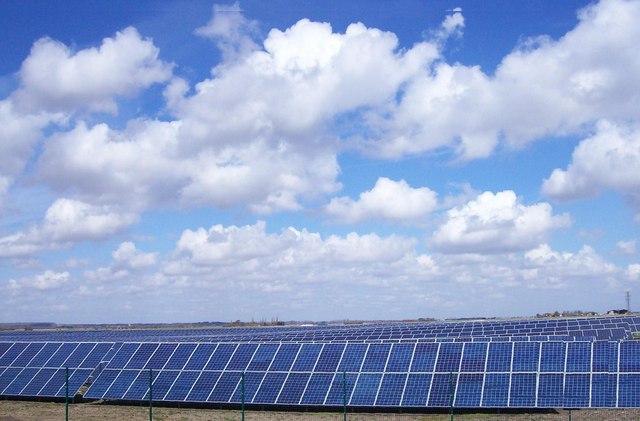I live in a sunny state. I wanted to find out why we don’t have solar panels everywhere. So I went to a solar farm down the road, asked some questions, and poked around online. This is what I found.

“I shouldn’t have worn flip-flops,” I think to myself, eying the fire ant nests rising all over on the ground. Still, l continue struggling to keep up with the man explaining how these solar panels are converting the sun’s energy into electricity.
Though my feet are keeping pace, my mind fell behind at around the point where “combiner boxes” were turning something into AC current. And something about an “inverter…?”
The man I am following is Brandon Durham. He is the Operations Manager of Strata Solar, the largest solar energy company in North Carolina.
The company has been one of the main driving forces behind NC’s rise to 4th in installed solar capacity among all 50 states, according to the Solar Energy Industries Association.
Headquartered in Chapel Hill, NC, Strata Solar makes small-scale solar “farms” that harvest the sun’s energy with solar panels. The company has seen dramatic growth in recent years, but its expansion has not been without some pushback from the community.
In particular, some citizens have spoken out against how the farms are zoned. Solar farms need to be close enough to communities that they can connect to the grid, so this sometimes results in them being built close to residential areas.
We are walking on the Chapel Hill farm—just one of nearly 70 such farms that the company has installed across the state.
There are long rows of metal sheets—all tilted south—colored in a mosaic of different shades of blue. And then two metal boxes on either end of the farm. They make a humming noise about as loud as an air conditioner, the noise waning when a cloud passes overhead.
No smokestacks, no radioactive material, no greenhouse gas emissions, no trucks or traincars carrying coal.
It all seems like it should be good for the community. The vultures flying overhead certainly don’t seem to mind the farm.
But Durham tells me that in order for Strata Solar to get the rights to build a new farm, they must get approval from community zoning boards. Part of this process involves attending hearings where concerned citizens can voice their opinions.
This is where they have run into some resistance.
Durham recalls a particular incident at one of these hearings. “There was one woman who was just really upset. She said her dog started losing its hair after we started installing. And I feel bad for her dog, but there’s just no evidence that the solar panels could have caused that.”
Other concerns Brandon has heard are that the farms are too loud and that they cause glare.
We are now standing on an elevated wooden platform that looks out over the farm, and the sound of a lawnmower off in the distance is louder than anything I can hear coming from the solar panels. I don’t see any glare from them either, though maybe if the sun were lower it might be different.
Markus Wilhelm, founder and CEO of Strata Solar, blames much of the resistance against solar farms on a misinformed public that may be uncomfortable with an unfamiliar form of power generation.
“We had one solar farm where the commissioners decided not to give us the permit because one woman said she wanted to move there and she is pregnant and she’s afraid that she’s gonna have a miscarriage if she moves there and we built the solar panels. And we said there’s not one piece of scientific evidence in the world today that indicates that there’s any harm done by solar panels, which are really just silicon, which is sand.”
The company even uses panels as tables in their office cafeteria, Wilhelm remarked, smiling.
Two of the more high-profile cases where NC zoning boards have denied Strata Solar the right to build a farm come from Laurinburg and Lincoln County.
Laurinburg commissioners decided to turn down the company’s application for a permit in April 2013. This decision came after a group of homeowners complained that their property values would decrease if the farm were built on the spot it was planned for, among other complaints.
An appellate court later found no evidence that the proposed farm would reduce property values and overturned this decision.
Lincoln County commissioners also turned down a proposed farm in late 2013, citing concerns that it wouldn’t be in harmony with Sailview, an expensive sub-division in the area.
Alex Patton was one of those commissioners that voted against the proposal. He declined to comment on his vote because the case is still tied up in appellate court.
Still, even with some local pushback Strata Solar is continuing to increase the speed of its production of solar farms.
Finally back to the office, Durham tells me that Strata Solar is now installing four acres of solar panels a day. This means that in the next two years, the company will install the energy equivalent of one nuclear power plant.
So, even with some local resistance it seems that Strata Solar isn’t going anywhere—at least as long as the sun keeps coming up.
